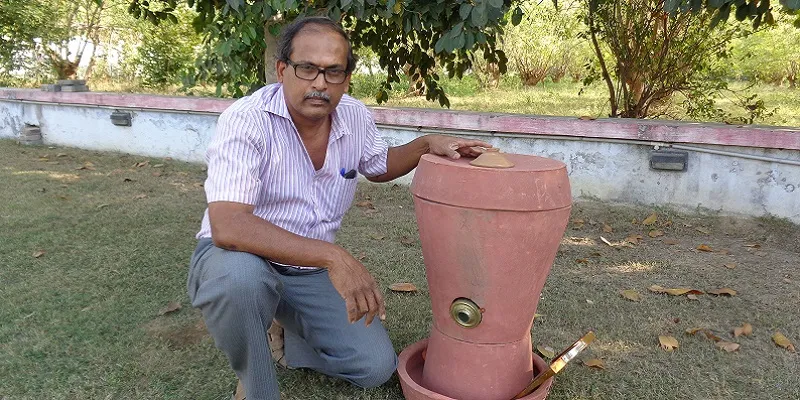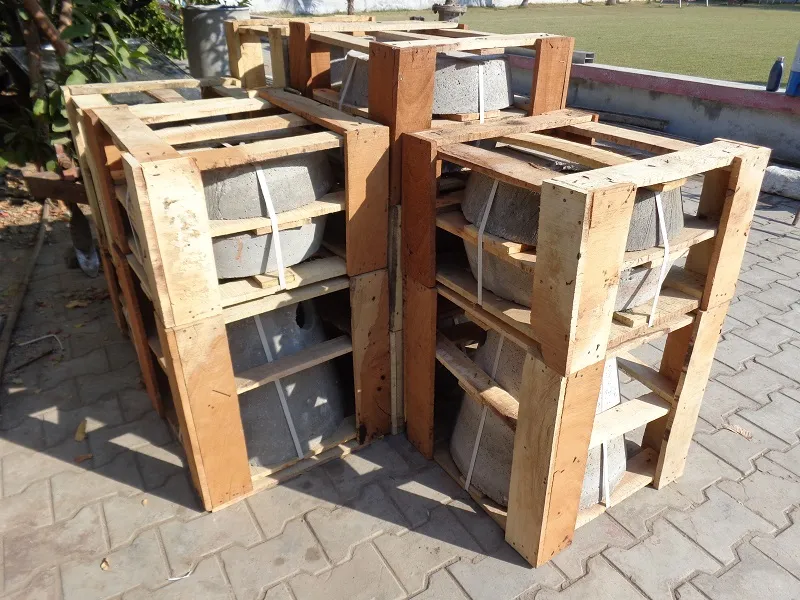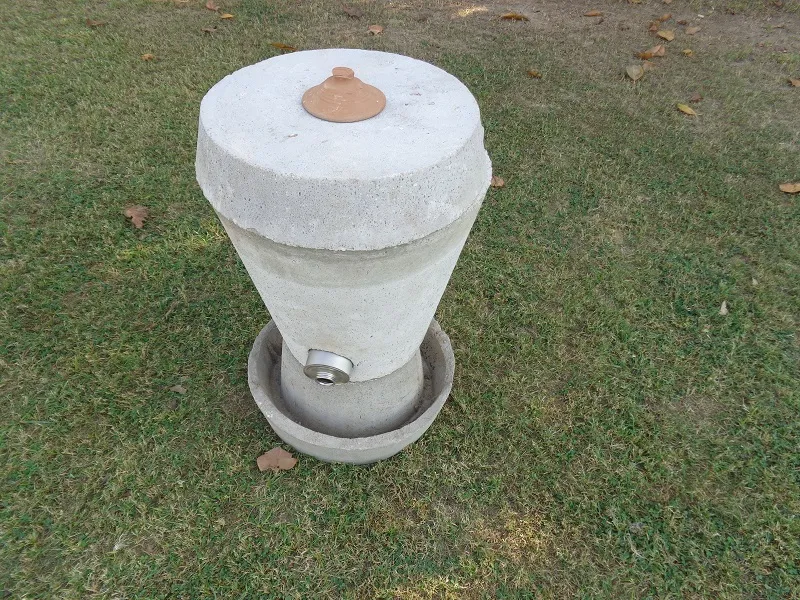3 highlights about Shyam Sunder Bedekar’s Rs 2.5 sanitary pad and incinerator social enterprise
Rural innovations have something beautiful about them. Solutions made by innovators who are in sync with the surroundings and serving the need of the hour. Shyam Sunder Bedekar’s Sakhi pads and the low-cost incinerator make one such example that have been written about widely. YourStory also covered the story in November and it has been very well received by readers.
The story began when Swati Bedekar realised the issue of taboos around menstruation while working in an educational programme near Dahod in Gujarat. Discussing the issues with her husband, Shyam, the duo then came up with the idea of making low-cost sanitary pads. And after the success of these Sakhi pads, Shyam then went on to build a low-cost incinerator that could take care of the issue of disposal. As a part of our Slow Tech magazine, we decided to pay a visit to this innovator and find out more.
Here are some pictures from the visit and some of the key highlights from this innovation

Is this a foolproof solution?
Menstrual hygiene management has been a topic of discussion in many circles and even the government has given a directive to provide free or subsidised sanitary napkins to schoolgirls across India. All this has led to the problem of disposal as well. This is what had led to the use of incinerators, and the innovation in question also promotes that school of thought that is a step nonetheless but on deeper inspection, it seems to fall apart. Although it is made of 85 percent wood, cellulose, and other biodegradable components, the remaining portion on burning release asphyxiant and irritant gases into the atmosphere.
The WHO recommends incinerating all health-related waste only at temperatures over 800 degrees, and decentralised incinerators with improper supervision might not help the situation. EcoFemme, another social enterprise, recommends reusable menstrual products as a sustainable solution. We found it prudent to highlight this side of the story before talking about more good things about Sakhi pads and the innovation.
The economics
The motive behind the initiative is clear - a sustainable enterprise that creates a visible social impact.
The duo started a unit in Dahod and employed a few local women who made the sanitary napkins. The aim was to make them cheap but without compromise on quality. And since the women were involved in the making, the taboo around napkins started fading away.
Initial setup cost was kept low by buying smaller machines and raw material that was available in Gujarat itself. The napkins were initially for Rs 2; now they sell it for Rs 2.5 of which Rs 1.5 is for raw material, and the woman who makes them gets 50 paise, while the women who markets get 50 paise as well. The tie-ups with schools and recognition from the government allowed them to reach a scale where the women were earning Rs 2,000-3,000 per month.


Design for scale
Electrical incinerators are expensive. Shyam thought if they didn’t find any solution for the disposal then their project would remain incomplete. First, they experimented with flower pots of terra cotta and moving on from there, they designed the whole thing. Shyam Bedekar believes, “The air pollution is there but it is equivalent to the pollution created by wooden stove (chulha) used by the women in village for one meal for her family and the benefits are way more than the loss. It won’t be cost efficient if filters were used.”
The demand has increased and the duo are getting orders from all over the country. Hence, the concrete incinerator was made. The design was kept the same but whereever it could break, steel rods were laid (reinforced concrete). Hence they were transported without any damage most of the time.
A few people have taken interest and Shyam is open to collaborate with groups who want to set up sister organisations under the Sakhi umbrella. There is a lot of hope in this innovator’s story but the key is not to get carried away and see how we can cover as many angles as possible. The question is to ponder over a step further and investigate an alternative to incinerators or can there be a better way of disposing? A push towards reusable pads and awareness about possibilities like menstrual cups seem like the way forward.
Do you wish to get involved with the initiatives here? Shyam Sunder Bedekar can be contacted at 09824074940, EcoFemme can be contacted here, and if you'd like to share some thoughts or write about the topic, write to us at [email protected]. (image credit: Juhi Mehta)







